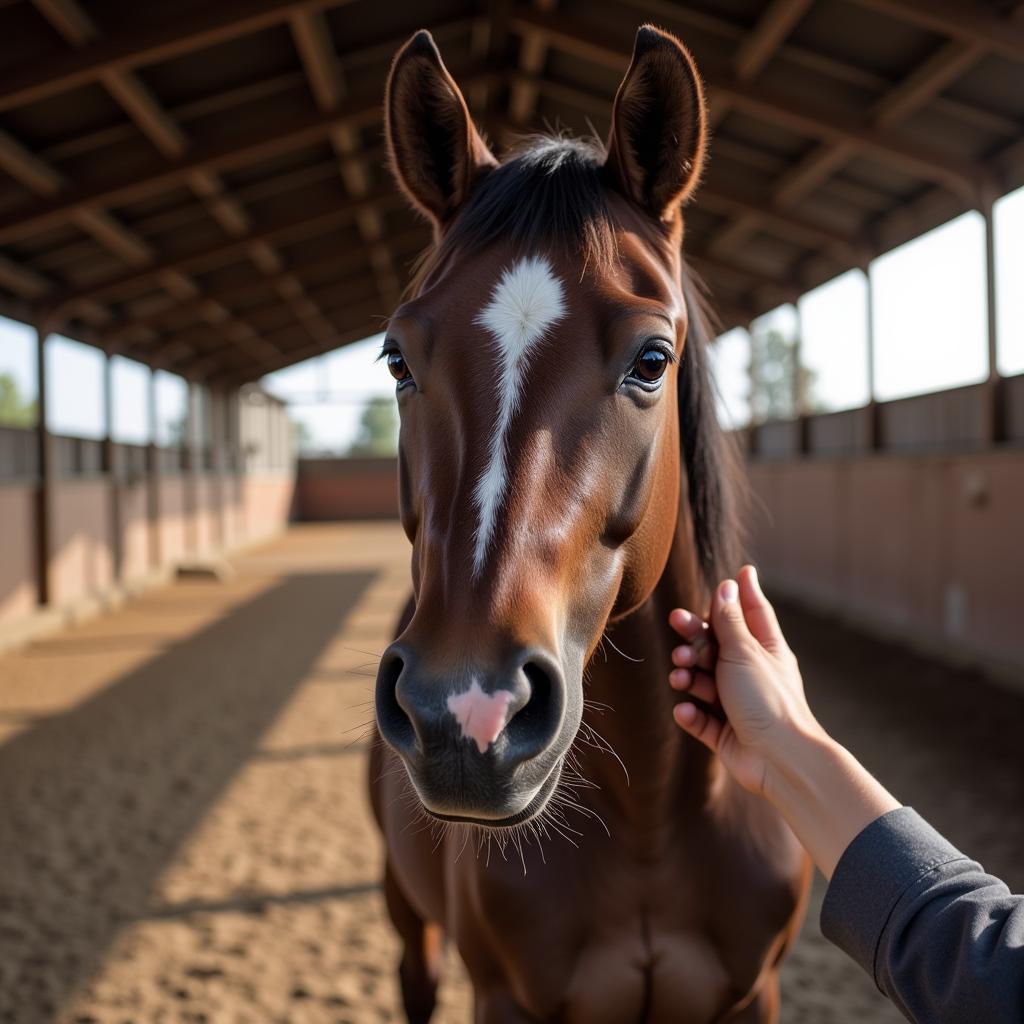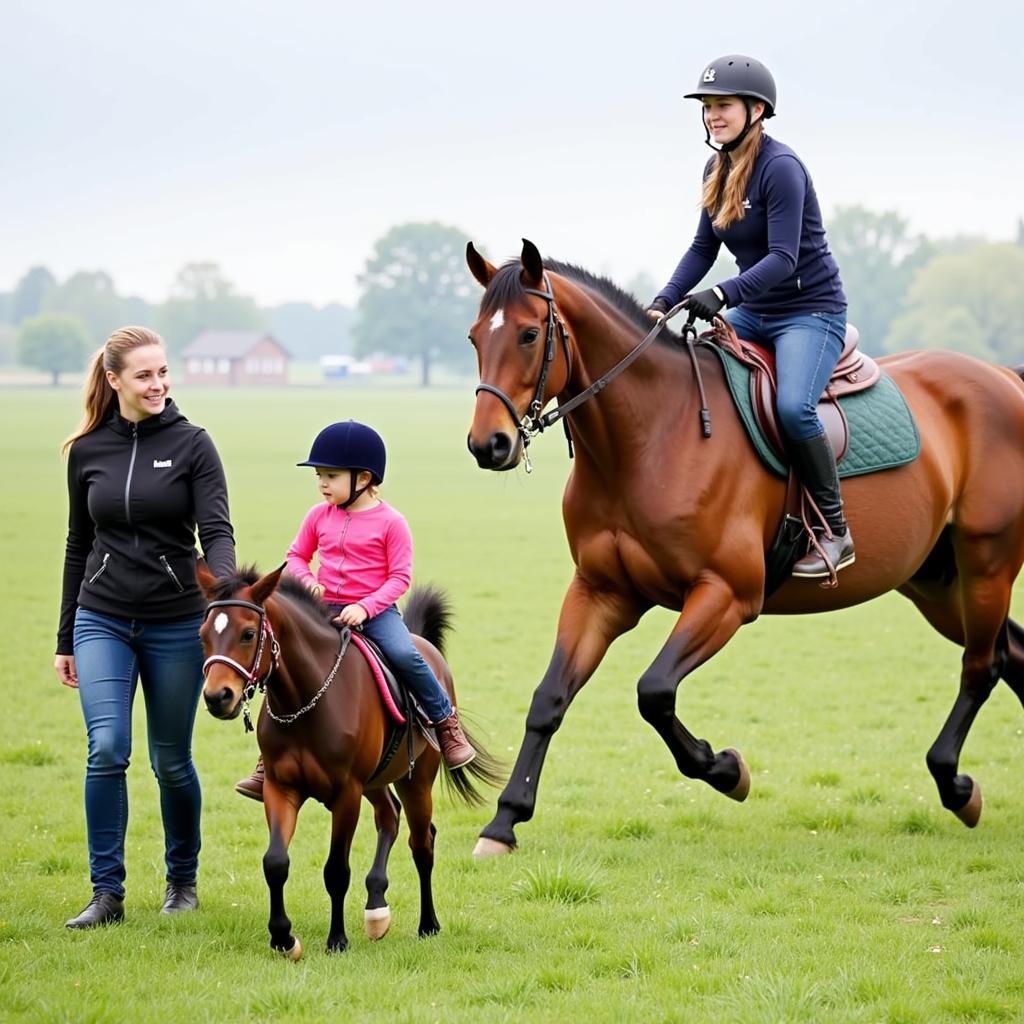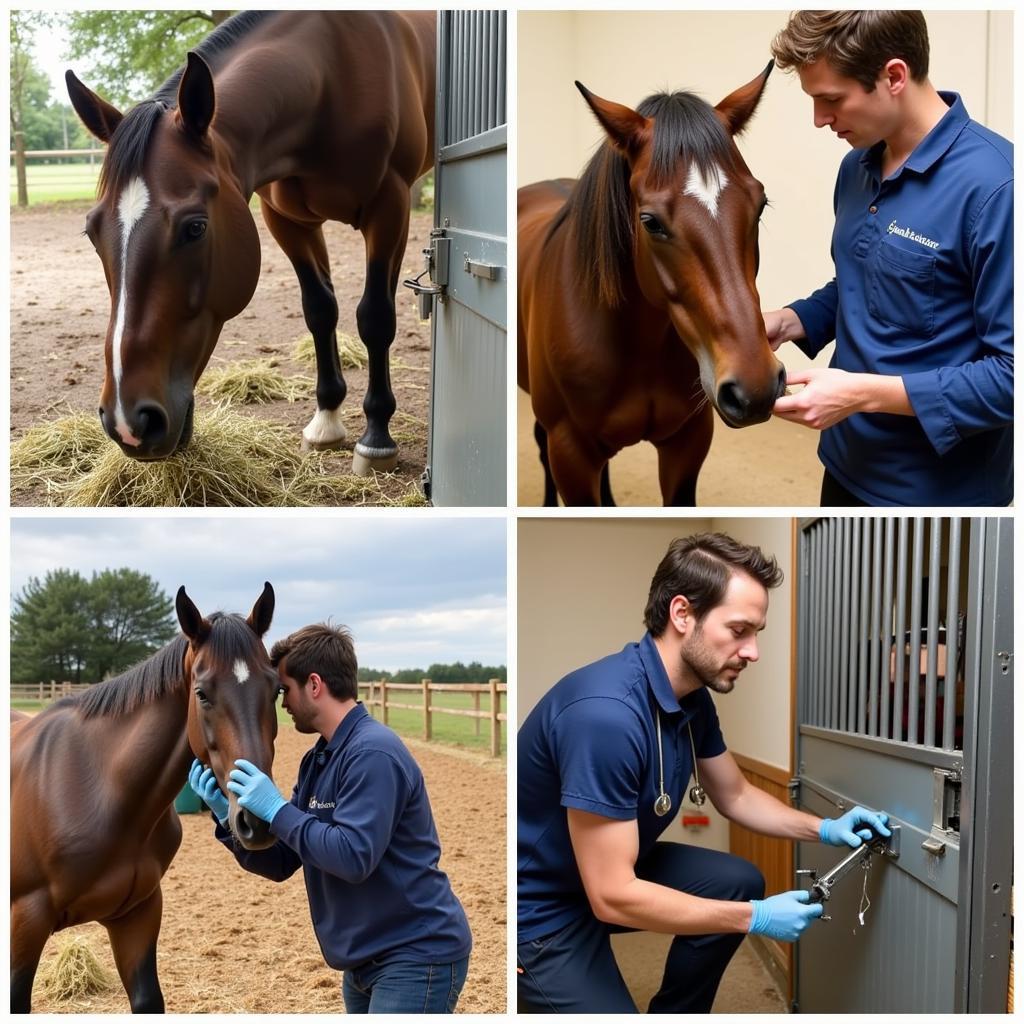Frederick Weinberg Horse is a term you might encounter within the equestrian world, often sparking curiosity and questions. While “Frederick Weinberg” isn’t a recognized horse breed in the traditional sense, it’s crucial to understand the context surrounding this term and delve into what makes a horse desirable for various disciplines. This article aims to provide comprehensive information, clarifying the significance of individual horse characteristics and training over breed names alone.
What Defines a “Frederick Weinberg Horse”?
The term “Frederick Weinberg horse” likely doesn’t refer to a specific breed, but rather a horse selected or trained by someone named Frederick Weinberg, potentially a trainer, breeder, or discerning horse owner. This means the “Frederick Weinberg horse” could encompass a variety of breeds or disciplines, unified by their connection to this individual. Instead of focusing on a specific breed, we should examine the qualities that make a horse excellent for its intended purpose.
Key Characteristics to Consider
When selecting a horse, whether for pleasure riding, competitive disciplines, or working purposes, several key characteristics are paramount:
- Temperament and Trainability: A calm, willing temperament is essential for a positive partnership between horse and rider. Look for a horse that is receptive to training and displays a willingness to learn.
- Conformation and Soundness: Good conformation, the physical structure and balance of the horse, is crucial for long-term soundness and athletic performance. Ensure the horse is free from any lameness or health issues.
- Athletic Ability and Movement: The horse’s athleticism should align with the intended discipline. Dressage requires graceful, fluid movement, while jumping demands power and agility.
- Bloodlines and Pedigree (When Applicable): While breed isn’t the sole determinant of a horse’s qualities, pedigree can provide insights into potential temperament, conformation, and athletic abilities, particularly within established breeds.
 Horse temperament and trainability assessment
Horse temperament and trainability assessment
Focusing on the Individual Horse
Rather than searching for a mythical “Frederick Weinberg” breed, focus on finding a horse that suits your individual needs and experience level. This requires careful evaluation and a thorough understanding of your own riding goals.
Matching Horse and Rider
Finding the right horse is like finding the right dance partner. It’s about compatibility, understanding, and shared goals. A beginner rider will benefit from a steady, reliable horse, while a more experienced rider might seek a more challenging and athletic partner.
 Matching horse and rider experience levels for optimal partnership
Matching horse and rider experience levels for optimal partnership
Beyond Breed: Training and Care
Regardless of breed or background, proper training and care are fundamental to a horse’s well-being and performance. Consistent, positive reinforcement methods build trust and encourage a willing partnership.
Essential Care Practices:
- Nutrition: Provide a balanced diet tailored to the horse’s individual needs and workload.
- Veterinary Care: Regular check-ups, vaccinations, and dental care are crucial for maintaining health.
- Farriery: Proper hoof care is essential for soundness and preventing lameness.
- Stable Management: A clean, comfortable stable environment promotes health and well-being.
Expert Insight: Dr. Amelia Hernandez, Equine Veterinarian
“Focusing solely on a name or perceived breed can be misleading. A horse’s individual characteristics, training, and overall care contribute far more to its suitability for a particular rider or discipline.”
 Essential horse care practices for maintaining equine health and well-being
Essential horse care practices for maintaining equine health and well-being
Conclusion
While the term “Frederick Weinberg horse” might not denote a specific breed, it highlights the importance of looking beyond breed labels and focusing on the individual qualities of a horse. By prioritizing temperament, conformation, training, and care, you can find the perfect equine partner, regardless of its background. Remember, the key to a successful partnership lies in understanding and meeting the horse’s individual needs. Finding the right horse is about much more than just a name.
FAQ
-
Does the “Frederick Weinberg horse” exist as a recognized breed? No, it likely refers to horses selected or trained by an individual named Frederick Weinberg.
-
What factors should I consider when choosing a horse? Temperament, conformation, athletic ability, and training are crucial factors.
-
Is breed the most important factor when selecting a horse? No, individual characteristics and training are more important than breed alone.
-
How can I ensure my horse’s well-being? Provide proper nutrition, veterinary care, farriery, and stable management.
-
Where can I find more information about horse care and training? Consult with experienced equine professionals, veterinarians, and trainers.
-
What is the best way to match a horse and rider? Consider the rider’s experience level and the horse’s temperament and training.
-
How can I learn more about different horse breeds and disciplines? Research online resources, books, and consult with equestrian experts.
Need further assistance? Contact us at Phone: 0772127271, Email: [email protected] or visit us at QGM2+WX2, Vị Trung, Vị Thuỷ, Hậu Giang, Vietnam. Our customer care team is available 24/7.